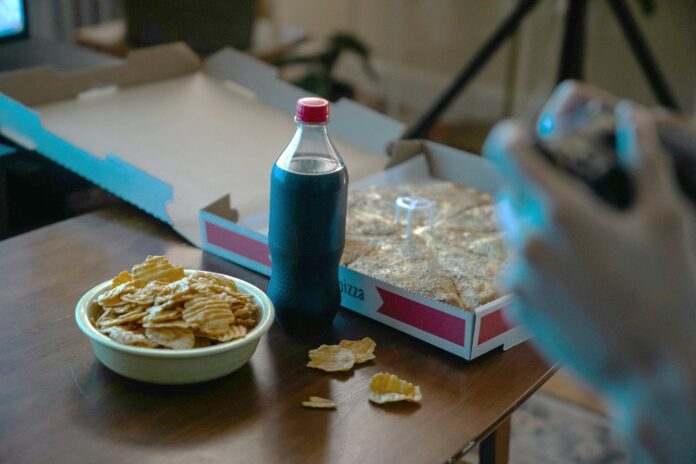
Background
The Health and Care Act 2022 amended the Communications Act 2003 to introduce restrictions on the advertising and sponsorship for food and drink products that are high in fat, salt, or sugar (“HFSS products”). These restrictions will come into effect on 1 October 2025 and will apply to advertising on Ofcom-regulated TV, on-demand programme services and online services, with each prohibited from (1) including advertising for HFSS products between 5:30am and 9:00pm, and (2) using paid-for online adverts for HFSS products when aimed at UK users (at any time).
However, the amended Communications Act 2003 and the UK Government’s policy statement makes it clear that these restrictions do not apply to:
- advertising for brands in general, provided there are no identifiable HFSS products in the adverts. This is to ensure that brands are not pigeonholed as being synonymous with HFSS products and can develop non-HFSS product ranges;
- advertisements for identifiable less healthy products by or on behalf of small or medium enterprises;
- business-to-business advertising in online media;
- advertisements in online media which are not intended to be accessed principally by persons in the UK; and
- advertising in online services connected to Ofcom-regulated radio services, and in other online audio services (provided they are not visual advertisements).
Following its consultation, Ofcom designated the ASA as a co-regulator of these restrictions as the body responsible for frontline enforcement. The ASA has subsequently issued a consultation on the implementation of these restrictions, including draft guidance.
ASA’s consultation – key takeaways
-
Parties subject to the restrictions
Whether an advertisement is caught within the rules will depend on the status of the relevant advertiser, though the legislation does not explicitly define an “advertiser”. It is already established that advertisements by or on behalf of SMEs and B2B will be out of scope of the restrictions. Advertisers most likely to be subject to the rules are businesses involved in or associated with the manufacture or sale of HFSS products. Importantly, this may also capture third parties associated with the HFSS producer – for example, home delivery providers who delivery HFSS. The ASA will likely consider whether third parties are captured on a case-by-case basis, where a closer link or association between the two parties will make it more likely that the third party is also caught by the rules.
-
Media and scope
Television rule
The restrictions applying to advertising on Ofcom-regulated TV of HFSS products between the hours of 5:30am and 9:00pm will be applied in line with the Broadcasting Code. This rule also captures any advertisements under a sponsorship agreement, including any programme sponsorship credits that are included in a TV service outside of programming.
ODPS rule
The restrictions applying to advertisements on on-demand programme services will capture advertising “included” in a regulated on-demand service, being any advertising that can be viewed by a user of the service as a result of the user selecting a programme to view. Advertising for an HFSS product that simply appears on the service, but not as a result of the user selecting a programme to view, will not be captured but will be subject to the online media rule (see below).
Online media rule
This rule covers the restrictions on paid-for advertisements for identifiable HFSS products placed in online media where the advertisement is directed at UK customers. Note that “paying” captures monetary and non-monetary consideration, meaning advertisements pursuant to sponsorship agreements will be captured in these restrictions.
As the online media rule requires payment to be made, this means that marketing on an advertiser’s own website and social media, and unpaid product listings on retail sites or delivery apps are likely to be out of scope (provided the underlying commercial relationship with the manufacturer or supplier does not entail a requirement for the placement of a product listing that could reasonably considered an advertisement by or on behalf of the manufacturer or supplier).
-
“Identifiable” HFSS products
An advertisement is for an “identifiable” HFSS product if people in the UK can reasonably be expected to identify the advertisement as being for that product. Generally, the rules are likely to apply to advertisements that:
- name a specific HFSS product explicitly in the text or audio of the advertisement;
- include imagery or other representations (e.g., animation, CGI or other artistic renderings) of a specific HFSS product with sufficient prominence for people in the UK to recognise it as an advertisement for that product (as clearly distinct from other variations of the same type of product);
- includes a piece of branding that is likely to result in consumers identifying the advertisement as one for a specific HFSS product (as clearly distinct from other variations of the same type of product) without referring to it or depicting it directly; or
- use a combination of imagery, other representations and/or branding that is likely to lead consumers to identify the advertisement as one for a specific HFSS product (as clearly distinct from other variations of the same type of product) without referring to it or depicting it directly.
For further guidance on what makes an HFSS product “identifiable”, including where the ASA are likely to find that an advertisement is in scope, see the ASA’s guidance.
Note that any advertising for HFSS products which have fallen out of scope of the restrictions will continue to be subject to the existing CAP Code and Broadcasting Code.
Have your say
If you’d like to get involved, the consultation will close on 7 February 2024 at 5:00pm. Watch this space!









